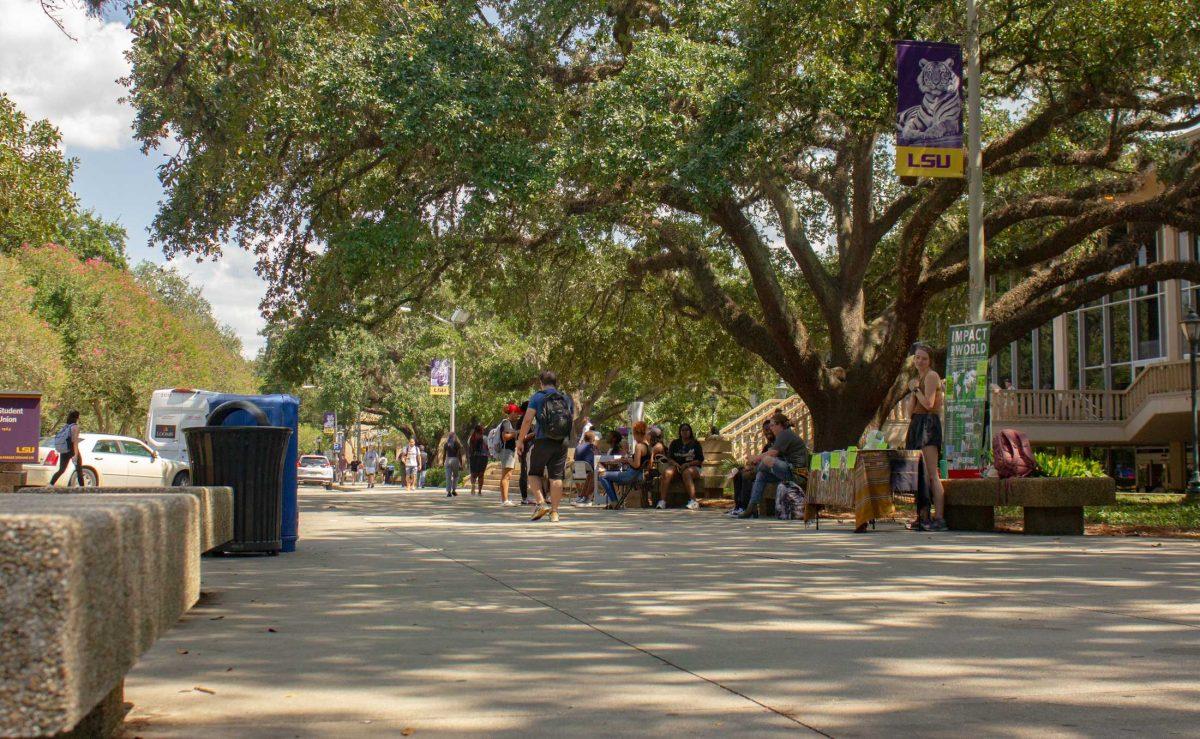Student Government amended their election code to include a cap on campaign spending, a shortened election timeline and defining roles for members of the election commission at their Wednesday, Sept. 14 meeting.
The new code will also institute changes to the number of penalties a candidate can have before being disqualified.
Political science senior and Student-body President Lizzie Shaw said SG worked over the summer to draft up an amended election code, adding that her experience as a candidate motivated her push to alter the election code.
“Everybody at the end of every year says ‘this sucks, we should change it,’ and then no one ever does and obviously from past presidencies there’s been this kind of ‘I suffered through it so you should suffer through it’ rite of passage thinking,” Shaw said.
She said the system was built unfairly and disadvantaged lower-income students.
In the previous code, candidates could announce their campaign at any time prior to the beginning of the campaign season. According to Shaw, candidates can now only announce their campaigns at the beginning of the season to prevent people from getting a head start.
The cap on spending was debated heavily at the meeting.
Some called for the limit to be at $5,000, while others called for as low as $3,000. After much debate, the Senate agreed to a compromise: a cap on spending at $4,000, with 25% being allowed to be spent on food for both campaign members and events.
According to psychology junior and Election Commissioner Chris Charles, the amount a campaign was allowed to spend used to be $2,000 for the president and vice president and $50 per Senate and college council seat each campaign had on its ticket. The more people on a ticket, the more a campaign was allowed to spend.
“We just want to make sure that we’re not wasting people’s time, money or energy and that we actually try to make it better,” Charles said. “That’s why the timeline was cut shorter than it was before. That’s why the money is a lot less now.”
In the past, if a campaign received a donation, it was only reported as 60% of the item’s value, Charles said. Now donated items are considered at their full value.
Additionally, SG members on the election commission now have clearly defined roles. The new roles include directors of finance, administration and communication.
These new changes also put more of a responsibility on the commission to communicate with the public and increase transparency, Charles said. This includes announcing the beginning of campaign registration to the wider LSU community.
Charles said the voting period will also now last two days instead of one.
According to Charles, there’s now a clearer way of issuing penalties on campaigns. Previously it was up to the judicial branch to decide on a case-by-case basis whether to disqualify a candidate.
Now, if a campaign receives up to six penalties they are automatically disqualified, Charles said.
Some infractions are worth more than others, Shaw said.
According to Shaw, some, like lying about campaign finances, can be worth six penalties by itself and will automatically result in disqualification.
If a campaign is disqualified, they are not allowed to run again for the rest of the academic year, Charles said, meaning that if they are disqualified in the fall, they can’t run again until the following fall, but if they’re disqualified in the spring they can still run again in the fall.
“It was just time that we really look at our code and say what can we change to make elections better,” he said.





